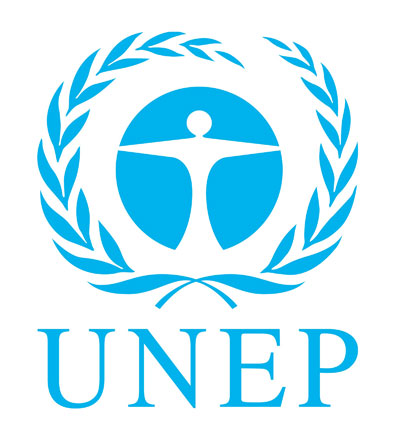UNEP study reveals that Nigeria faces the world’s largest ever oil clean-up
A landmark study by the United Nations Environment Programme (UNEP) into the long-term environmental impact of oil production and excavation in Nigeria could lead to the world’s largest ever oil clean-up.


A landmark study by the United Nations Environment Programme (UNEP) into the long-term environmental impact of oil production and excavation in Nigeria could lead to the world’s largest ever oil clean-up. The whole operation could cost as much as US$1 billion and take as long as 30 years.
The investigation shows that pollution from over 50 years of oil operations in the region has penetrated further and deeper than anyone could have predicted. UNEP’s report also shines the spotlight firmly on the activities of Royal Dutch Shell PLC, which for years drilled in the area and which funded the report. The report released yesterday details how a UNEP led team investigated over 200 locations in the Niger Delta, with tests on groundwater and soil contamination carried out at a total of 69 sites. The organisation also surveyed 122 kilometres of pipeline rights of way, reviewed more than 5,000 medical records and engaged over 23,000 people at local community meetings.
The research found that the control and maintenance of the infrastructure at the Ogoniland oilfield “has been and remains inadequate”, and that “the Shell Petroleum Development Company’s own procedures have not been applied, creating public health and safety issues”. Some areas, which appear unaffected at the surface, are in reality severely contaminated underground and action to protect human health and reduce the risks to affected communities should occur without delay says UNEP’s Environmental Assessment of Ogoniland. In at least 10 Ogoni communities where drinking water is contaminated with high levels of hydrocarbons, public health is seriously threatened. In one community, at Nisisioken Ogale, in western Ogoniland, families are drinking water from wells that is contaminated with benzene, a known carcinogen, at levels over 900 times above World Health Organization guidelines. The site is close to a Nigerian National Petroleum Company pipeline. 
UNEP scientists also found an 8 cm layer of refined oil floating on the groundwater which serves the wells. This was reportedly linked to an oil spill which occurred more than six years ago. While the report provides clear operational recommendations for addressing the widespread oil pollution across Ogoniland, UNEP recommends that the contamination in Nisisioken Ogale warrants emergency action ahead of all other remediation efforts. While some on-the-ground results could be immediate, overall the report estimates that countering and cleaning up the pollution and catalyzing a sustainable recovery of Ogoniland could take 25 to 30 years. Through a combination of approaches, individual contaminated land areas in Ogoniland can be cleaned up within five years, while the restoration of heavily-impacted mangrove stands and swamplands will take up to 30 years. However, according to the report, all sources of ongoing contamination must be brought to an end before the clean-up of the creeks, sediments and mangroves can begin.
The report therefore recommends establishing three new institutions in Nigeria to support a comprehensive environmental restoration exercise.A proposed Ogoniland Environmental Restoration Authority would oversee implementation of the study’s recommendations and should be set up during a Transition Phase which UNEP suggests should begin as soon as possible. The Authority’s activities should be funded by an Environmental Restoration Fund for Ogoniland, to be set up with an initial capital injection of US$1 billion contributed by the oil industry and the government, to cover the first five years of the clean-up project. A recommended Integrated Contaminated Soil Management Centre, to be built in Ogoniland and supported by potentially hundreds of mini treatment centres, would treat contaminated soil and provide hundreds of job opportunities. The report also recommends creating a Centre of Excellence in Environmental Restoration in Ogoniland to promote learning and benefit other communities impacted by oil contamination in the Niger Delta and elsewhere in the world. Reforms of environmental government regulation, monitoring and enforcement, and improved practices by the oil industry are also recommended in the report.
Despite the report firmly placing the majority of blame on Shell, the oil company has welcomed the report with managing director Mutiu Sunmonu stating, “This report makes a valuable contribution towards improving understanding of the issue of oil spills in Ogoniland. All oil spills are bad – bad for local communities, bad for the environment, bad for Nigeria and bad for SPDC. Although we haven’t produced oil in Ogoniland since 1993, we clean up all spills from our facilities, whatever the cause, and restore the land to its original state,” he said. “The majority of oil spills in Nigeria are caused by sabotage, theft and illegal refining. We urge the Nigerian authorities to do all they can to curb such activity, and we will continue working with our partners in Nigeria, including the government, to solve these problems and on the next steps to help clean up Ogoniland,” Mr Sunmonu added.
However, the human rights group Amnesty International has condemned Shell for their actions, pointing to the fact that the report proves that the land which Shell claims to have cleaned-up after previous oil spills remains heavily polluted. Amnesty International feel that it is time for Shell to come clean over its failings and focus on the “truth, rather than protecting its corporate image”. Amnesty International global issues director Audrey Gaughran added, “this report proves Shell has had a terrible impact in Nigeria, but has got away with denying it for decades, falsely claiming they work to best international standards.”
Images courtesy of UNEP


